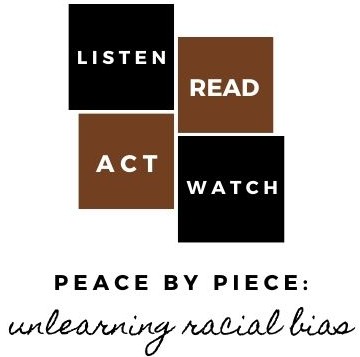This post is part of a year-long series. If my work is helpful for you, consider a contribution through Venmo to support this crucial work of unlearning racial bias.
In piece 12, I shared a bit about voter suppression, what it looked like in post-Reconstruction America, and what it looks like in our country today. I will echo a question here that I asked at the end of last week’s post: have you done anything to hold your elected officials accountable for their actions? I have written letters and emails, spoken once during public comments at a commissioners’ meeting and once at a city council meeting – knees knocking and voice shaking but speaking nonetheless. And I’m not done speaking up to advocate for what I think is best for this community, which at the moment is not having a confederate heroes monument looming over the Gregg County Courthouse.
This week, my focus will shift from voter suppression to wrongful imprisonment.
There is a scene at the end of episode two of “When They See Us” when one of the characters practices his trumpet in the middle of the street as the camera pulls backward slowly. The tune the young man plays is not recognizable to me, but its mournful tones resonate as deeply as the sorrow in his eyes.
There is another moment, too, after the boys have been arrested, when they are being interrogated. At one point, one of the boys is asked about to describe his role in raping the young woman who was attacked while jogging through Central Park. The boy’s response is that he “did it to her.” The scene is so deeply uncomfortable because it is transparently clear that the boy is so inexperienced and naive that he is truly perplexed by the specifics of sexual intercourse, let alone the mechanics of a vicious sexual assault.
For these reasons among many others, not the least of which is that a now-prominent politician took out a full page ad in the New York Times calling for the death penalty to be reinstated to execute these then-children, the first resource I am recommending to you this week is the limited-run dramatic series “When They See Us.” I don’t know that I’ve ever before seen such a poignant examination of just how short-lived black childhood truly is in this country. Even today, well into their adult lives, there are people who stubbornly refuse to believe that the now-exonerated individuals who were jailed as a result of this case, had nothing to do with the crime that took place that night in 1989. “When They See Us” does not pretend to be a documentary that presents facts in an unbiased way. Rather, it calls its audience to pause, think, and empathize with the real men after whom these characters are modeled. We are invited to see these wrongfully convicted adult men as the innocent children they once were, and to mourn with them the childhood they lost that can never be returned to them. I recommend watching this series slowly, no more than an episode at a sitting, as it is emotionally heavy. I also recommend staying tuned for the interview between Oprah and the cast, the Exonerated Five, and the visionary director Ava DuVernay. I will be honest and tell you that I wept watching this series and the interview. Even if you are not moved to tears by this tragic story, I hope that you are moved to learn more about this case and others like it, to pay attention to disparate sentencing for similar crimes among different ethnic groups in this country, and that you check yourself for biases you may have when you read news headlines or encounter black strangers in real life.
The second resource I suggest this week is a short TedxTalk from writer Clint Smith. “How to Raise a Black Son in America” succinctly captures the terror of raising a black son in America. He references “the talk” that black parents give their children, the protective, firm admonition to always keep your hands where police can see them. He contextualizes the statement that black lives matter, explaining why it’s necessary to say such a thing and how it isn’t a term meant to exclude anyone but to affirm the dignity of black people’s lives. Smith is a perennial fave of mine. I’ve enjoyed his poetry, his history-based commentary on Pod Save the People, and the occasional Instagram pics he shares of his growing family. This particular TedxTalk, though, was my introduction to his work. It’s as resonant today as it was when I came across it a few years ago – maybe even moreso. I hope that as you watch his brief talk, you’ll fully listen to both the literary and historical context he provides and the personal experience he shares.
Since this week’s piece is a quarter of the way through the series, my reflection questions will be more cumulative than resource-specific:
- How do you feel your thinking has changed since you began to read this series?
- Have you diversified the sources of information from which you draw, beyond the resources I specifically recommend in this blog series?
- Are you consciously, actively striving to check your biases when you notice them in your everyday life?
- What action have you taken to advance efforts toward justice, peace, and equity?
As you take in these resources this week, I hope you’ll take deep breaths as well. Breathe through the emotions each piece brings to the surface, allowing yourself to feel deeply the humanity of the children arrested in 1989, of young Clint Smith as he played with friends one night in a hotel parking lot. Come back again next week, and we will keep working together to unlearn racial bias and cultivate peace in our lives and homes and communities, one piece at a time.
